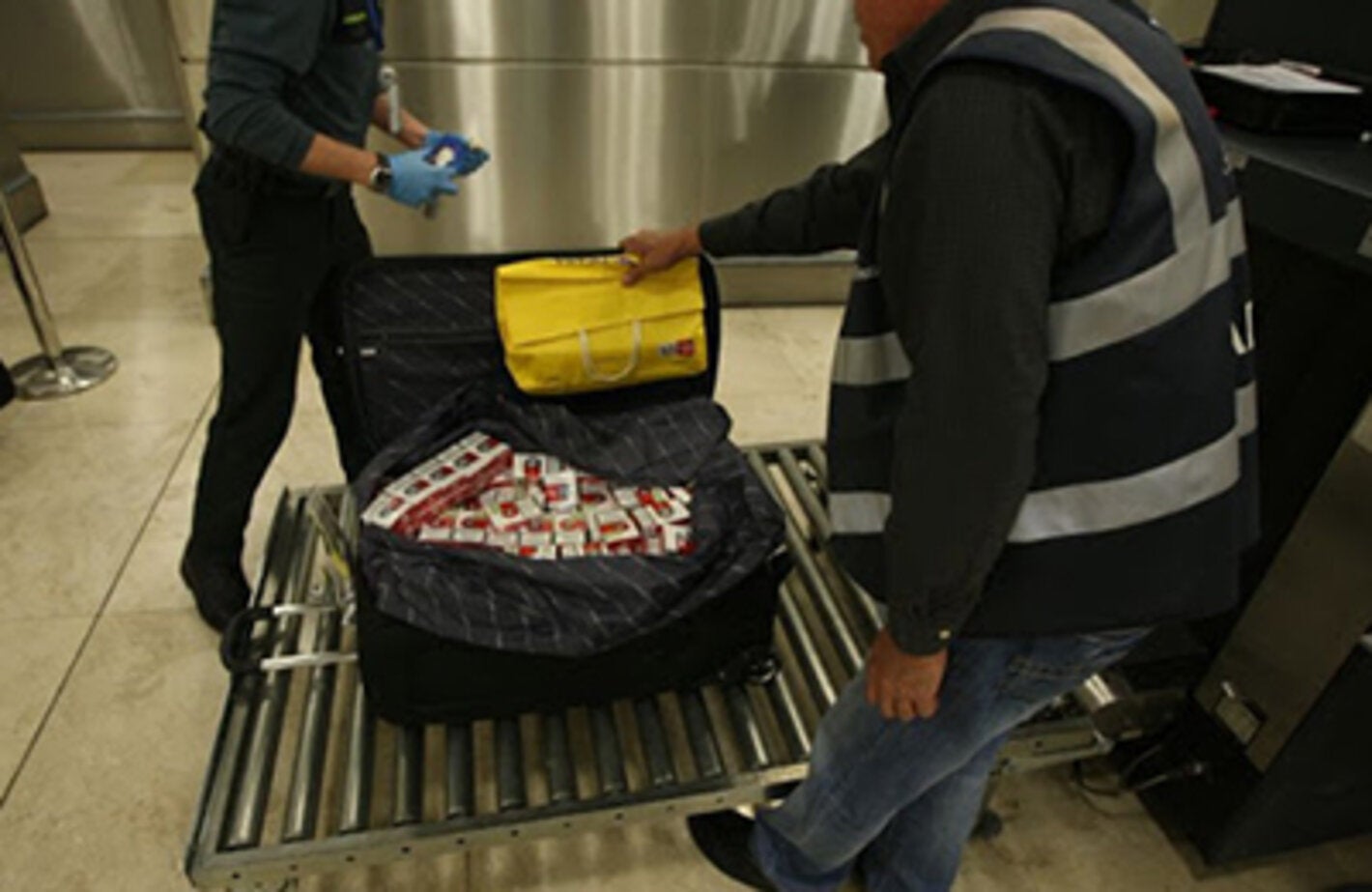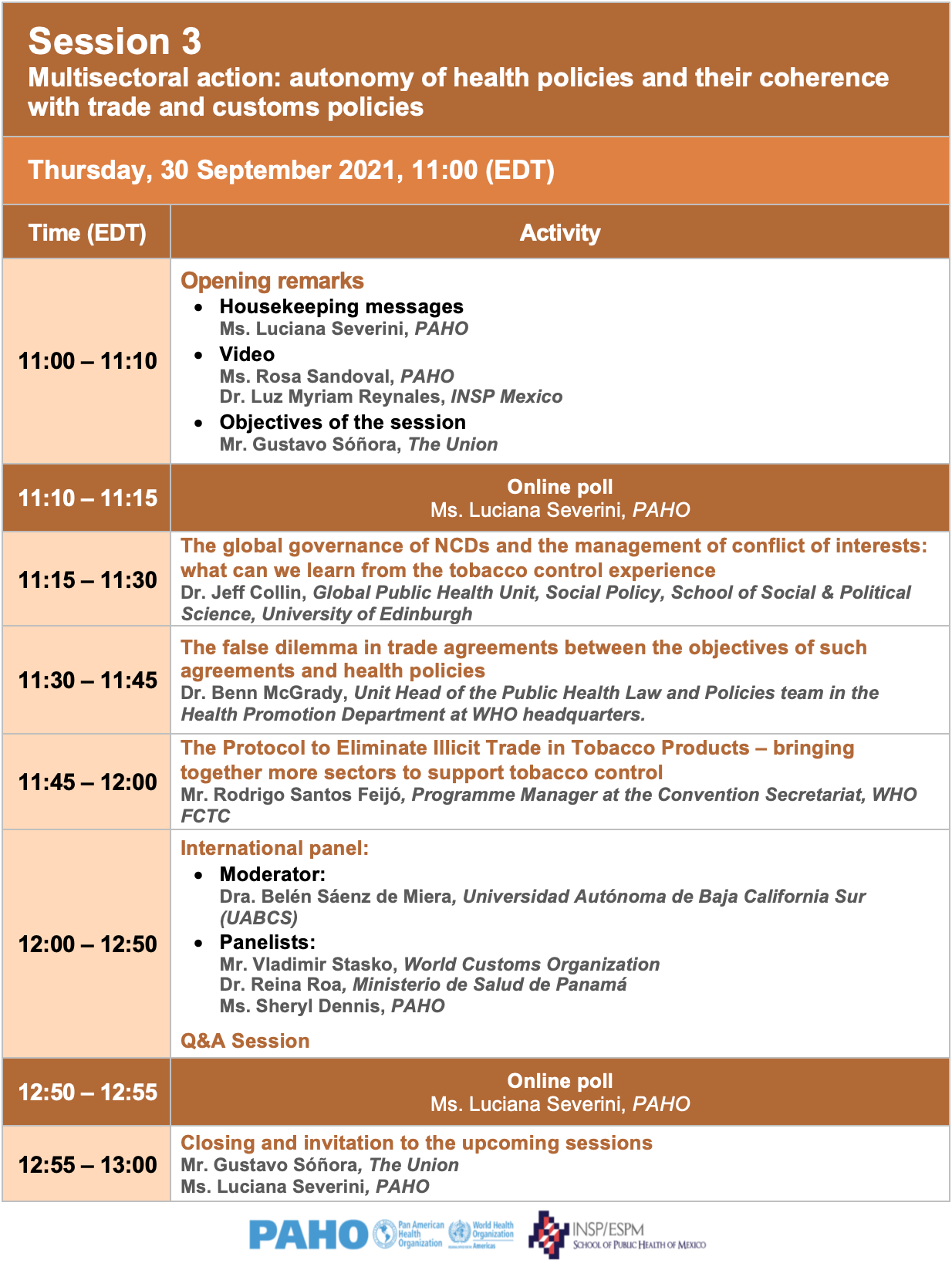
- DATE: Thursday, 30 September 2021
- TIME: 11:00am EDT [click here for your corresponding time zone]
- DURATION: 120 minutes
The adoption of international instruments, such as the WHO Framework Convention on Tobacco Control (WHO FCTC) and The Protocol to Eliminate Illicit Trade in Tobacco Products, is an evidence-based answer to the tobacco epidemic, as tobacco is one of the main health threats in the world and the main risk factor for noncommunicable diseases (NCDs). Both instruments require governments to take a multisectoral approach and establish cooperation among authorities in health, finance, customs and trade, and so forth.
In line with these instruments, states have implemented tobacco control measures such as restrictions on commercialization, tobacco promotion and advertising bans, regulation of tobacco use, and labeling measures, among others. In this context, it is of vital to examine how these health measures connect with other agendas and the importance of multisectorality. This discussion is necessary from both a national level and global perspective as global health is considered a subject of not only national states but of international organizations, transnational corporations, civil society, etc.
Two critical agendas in the region need to be consistent with tobacco control health policies, which are vital to addressing the tobacco epidemic: trade and customs policies. This is mainly due to supposed tension existing between trade agreements and the protection of public health, as well as between the objectives of illicit trade control policies and tobacco control policies.
National coordinating mechanisms for tobacco control, aligned with the provisions of Article 5 of the WHO FCTC, are therefore crucial for the protection of public health policies from possible industry interference to undermine effective tobacco control policies. Such interference has also been seen with other industries such as with ultra-processed food manufacturers.
About Session 3
Objectives of the Session:
- Review the progress in addressing conflicts of interest in tobacco control governance and present lessons learned for other NCD risk factors
- Address significant points related to the discussion about the coherence between tobacco control health policies with trade agreements and customs policies
- Share key tools and experiences to promote the ratification of the Protocol to Eliminate Illicit Trade in Tobacco Products in view of the second meeting of the Parties to be held on November, 2021
- Disseminate key arguments to support multisectoriality in addressing the tobacco epidemic and promote policy coherence with government sectors beyond health
Agenda
click here for a bibliography of resources for Session 3

